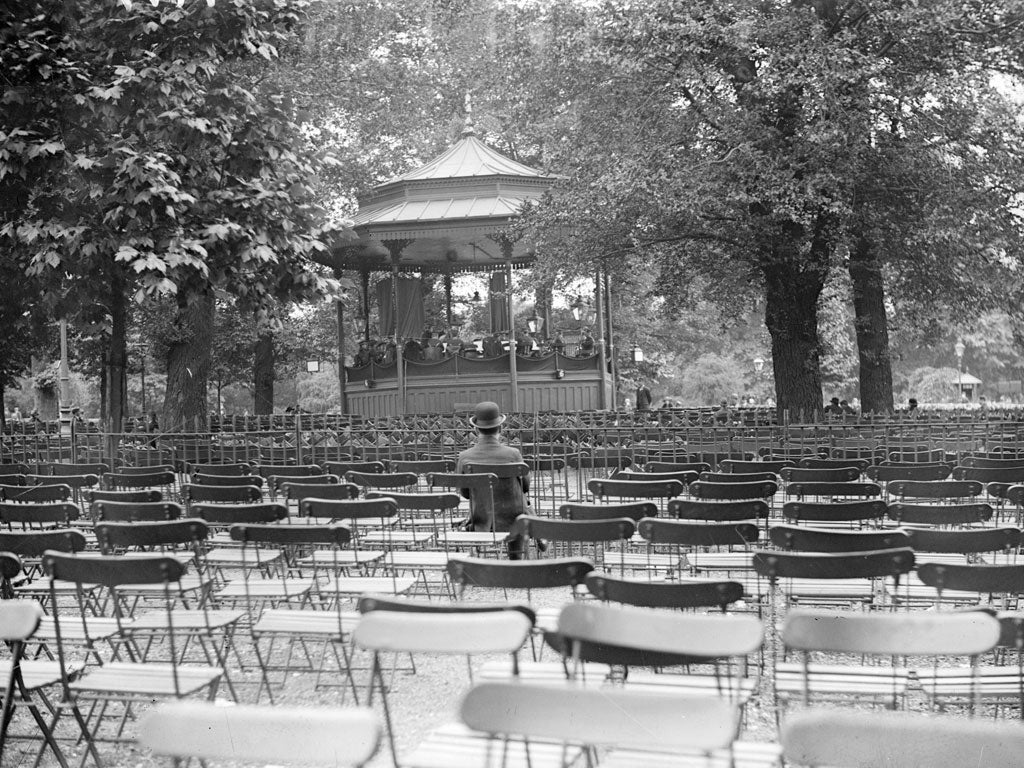Trending: Want to be alone? You’re in luck
In the age of self-serve and online, many of us spend days without speaking to anyone. Does it matter? Rhodri Marsden argues that with conversation, it's all about quality, not quantity

Your support helps us to tell the story
From reproductive rights to climate change to Big Tech, The Independent is on the ground when the story is developing. Whether it's investigating the financials of Elon Musk's pro-Trump PAC or producing our latest documentary, 'The A Word', which shines a light on the American women fighting for reproductive rights, we know how important it is to parse out the facts from the messaging.
At such a critical moment in US history, we need reporters on the ground. Your donation allows us to keep sending journalists to speak to both sides of the story.
The Independent is trusted by Americans across the entire political spectrum. And unlike many other quality news outlets, we choose not to lock Americans out of our reporting and analysis with paywalls. We believe quality journalism should be available to everyone, paid for by those who can afford it.
Your support makes all the difference.Call me a cynic, but the phrase "worrying trend" seems inherently dubious to me. Setting aside the fact that a mere three or four incidences of something can be termed a trend, you've got the more nebulous question of exactly who is doing the worrying. This week we're supposed to fret over the "digitally dominant", a "significant" group of people who mainly communicate via text, email and video, and as a result can go "up to" 48 hours without speaking to someone in person.
From this we're supposed to extrapolate the death of society, as one by one we retreat to our bedrooms, deriving all the pleasure we require from top-selling iPhone app Keith Lemon's Mouthboard.
These studies are unleashed from time to time, and many of them seem to place a preposterous emphasis on the supposed value of having low-quality social interaction on high streets with people we don't know. We're told that a "digitally dominant" person is four times less likely to go to a shop to buy food, preferring to order it online and thus contributing to the worrying trend – but this could have been avoided if they'd had an inconsequential chat about the weather with a supermarket cashier. Teenagers shunning lengthy phone conversations in favour of text messages are regularly deemed to present a similar problem to society, but no one ever praises the way this social efficiency frees up extra time to do whatever it is teenagers do. Like arranging to meet other teenagers.
Once again the internet is blamed for a decline in social interaction. This is a place – albeit virtual – where like-minded people can be easily found, where exchanges are usually more meaningful that the ones you'd have with a chap at the shoe repair shop, where real-life relationships begin.
This week I'll meet a dozen or more people who I wouldn't know if it wasn't for the internet – and yes, I know this is purely anecdotal, but studies that slam the impact of technology on society are, too. Even Sherry Turkle, an American academic whose book Alone Together has become renowned for its questioning of the value of social media, has been criticised for using emotional language in her book – e.g, getting upset with people for using their phones at funerals.
The social impact of technology on the digitally dominant, the digitally deft or digitally deaf is something we're still trying to work out. We don't know. But the studies roll out, regardless, claiming to provide some kind of measurement of solitude. You wouldn't get a news report saying that 3 per cent of people don't get out much, but if they're using a laptop, we suddenly need to be worried? The crucial question that's rarely asked in such studies is "And are you happy?" Some people might be, some might not – but they're quietly getting on with doing what they want to do. And the fact that that might be deemed a worrying trend is, in itself, a worrying trend.
Old-fashioned exchanges
Buying bread at the supermarket, you might be asked by the cashier if you'd like help packing. "No thanks," you'd say, before taking your loaf home. It was a conversation... of sorts.
Back when buses had conductors, you could have a nice chinwag about wanting a single to Highbury. And maybe get change for a fiver.
At the newsagents, there would be the option of having a chat about the weather and a grumble about who'd had the last copy of the Radio Times.
You'd go to see your bank manager to ask for a loan. They would say no. But they'd like to have a chat about when you're going to pay off that overdraft...
New-fangled interactions
Buying bread at the supermarket, the screen demands to know how many baguettes you've got. After pressing "1", it tells you to remove unidentified items from the bagging area. It's exactly the conversation you'd expect from a till.
Having been waved on to the bus by a silent driver, the only conversation you're likely to encounter is that of the girl in the seat behind you gossiping on a mobile phone.
You download your magazine to the Newsstand app. At least you don't have to go out in that terrible weather.
You go to your bank's website and try to log in using the secure card keyring thingy. You can't remember what buttons to press or where your memorable place is. You try Penury.co.uk and get a loan with an APR of 3,000 per cent.
Rebecca Armstrong
Join our commenting forum
Join thought-provoking conversations, follow other Independent readers and see their replies
Comments